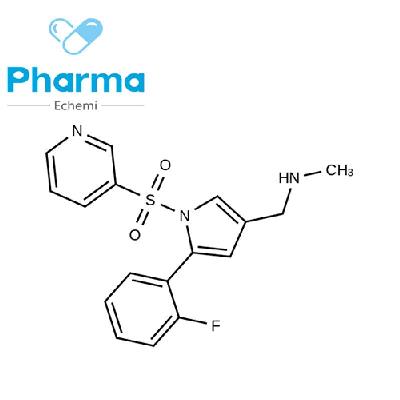-
Categories
-
Pharmaceutical Intermediates
-
Active Pharmaceutical Ingredients
-
Food Additives
- Industrial Coatings
- Agrochemicals
- Dyes and Pigments
- Surfactant
- Flavors and Fragrances
- Chemical Reagents
- Catalyst and Auxiliary
- Natural Products
- Inorganic Chemistry
-
Organic Chemistry
-
Biochemical Engineering
- Analytical Chemistry
-
Cosmetic Ingredient
- Water Treatment Chemical
-
Pharmaceutical Intermediates
Promotion
ECHEMI Mall
Wholesale
Weekly Price
Exhibition
News
-
Trade Service
Guide
Ischemic bowel disease is a group of ischemic injury diseases of the intestinal wall caused by local arterial insufficiency or obstruction of venous return due to various reasons, and is classified as acute mesenteric ischemia (acute mesenteric ischemia, AMI ) , chronic mesenteric ischemia (CMI) and ischemic colitis (IC).
Ischemic bowel disease is a rare disease that tends to occur in the elderly over 60 years of age
.
Due to its non-specific clinical manifestations, various laboratory tests lack typical signs and are often misdiagnosed, delaying the timing of
treatment.
The causes and risk factors for ischemic bowel disease are summarized
here.
Anatomical basis of intestinal ischemia
The cecum, ascending colon, and transverse colon are also supplied
by the superior mesenteric artery.
The descending colon, sigmoid colon, and most of the rectum are supplied
by the inferior mesenteric artery.
The larger branches of the superior and inferior mesenteric arteries also form continuous arterial arches, called marginal arteries, from which many straight arterioles are sent to supply the colon, and the veins accompany the arteries
.
The marginal arteries are small in the colonic splenic curvature, so the colonic splenic curvature is prone to ischemia
.
In addition, the colon is prone to ischemia at the junction of the superior mesenteric and inferior arteries and the intersection of the inferior mesenteric artery and the internal iliac artery, that is, the left hemicolon (descending colon and sigmoid colon) is prone to ischemia
.
Causes
of ischemic bowel disease There are many causes of intestinal ischemia, and factors that cause hypovolemia or oxygen saturation can cause intestinal ischemia:
- Vascular factors
to ischemic injury due to visceral ischemia.
- Intestinal factors
to the intestinal mucosa.
- Blood changes
, blood hypercoagulability, is a high risk factor
for the occurrence of the disease.
- Insufficient blood flow
can easily cause a decrease in cardiac output, which can induce intestinal ischemia
.
- Other diseases
also promote the occurrence
of ischemic bowel disease.
Risk factors for ischemic bowel disease in older adults
Common risk factors include heart failure, arrhythmias, atrial fibrillation, shock from all causes, arterial thrombosis, and mechanical ileus
.
iatrogenic factors include aneurysm resection, aortic surgery, coronary artery bypass grafting, bowel resection, colonoscopy, barium enema, gynecological surgery, etc
.
Drug factors include cocaine, danazol, digoxin, estrogen, amphetamine, diuretics, nonsteroidal anti-inflammatory drugs, etc
.
References:
1.
Cui Ning, Luo Hesheng.
Clinical characteristics of young and middle-aged patients with ischemic bowel disease[J] .
Chinese Medical Journal,2012,92( 22 ): 1544-1546.
2.
LIU Xianmin, ZHANG Yu, BAI Yanli, et al.
Clinical characteristics of elderly patients with ischemic bowel disease[J] .
Chinese Journal of General Practitioners,2018,17(7): 538-542.
3.
HUANG Yan, XUE Ling, XU Jinghong, et al.
Diagnosis of ischemic bowel disease[J] .
Chinese Journal of Inflammatory Bowel Disease,2020,04(02): 161-164.
4.
Chinese Expert Recommendations on the Diagnosis and Treatment of Ischemic Bowel Disease in the Elderly (2011) [J] .
Chinese Journal of Geriatrics,2011,30(
01 ): 1-6
ZHU Yueyong,ZHUANG Zehao,DONG Jing.
Gastroenterologist's Handbook of Ward Rounds (2nd Edition)[M].
Beijing:Chemical Industry Press,2017







